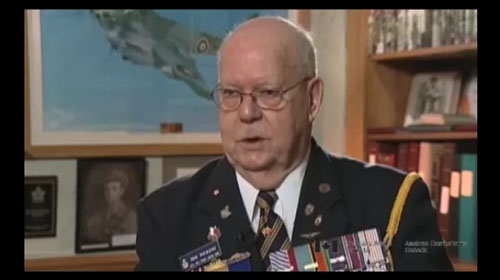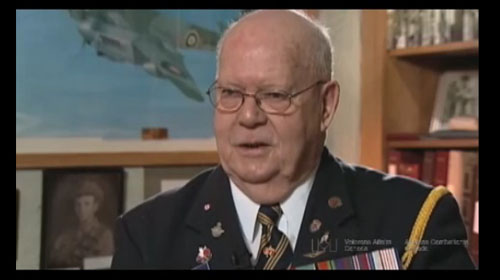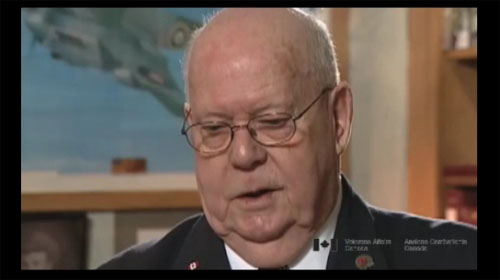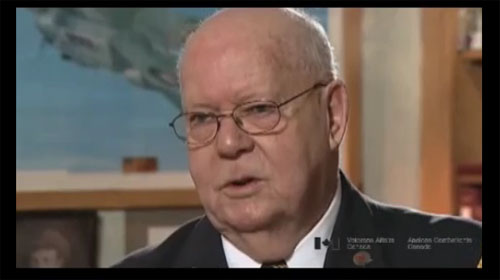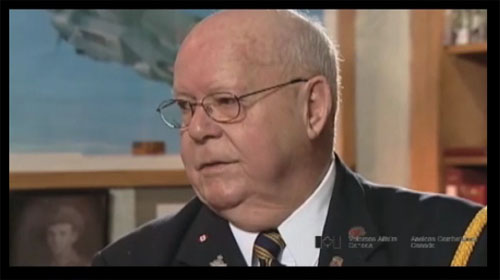Bush Pilot
Heroes Remember
Bush Pilot
We had the navigation class and we also had, would you believe,
radio operators taking the communication type of thing, see,
which we weren’t really involved with at all as a navigator.
But that was just part of the course. We had taken the study of
the stars and this sort of thing for astronavigation and so forth
But generally speaking it was just... I liked math in school and
it was right up my alley. I really enjoyed every part of it.
I was in pretty good shape, a lot better shape than I’m in now,
I’ll tell ya! When I got out of the service I weighed 135 pounds
and that’s about seventy pounds less than I weigh now so... there
wasn’t an ounce of fat on you, you know, so I was in good shape.
Our pilots were bush pilots that were civilians. Here's an
example, we were all briefed to fly this day and I think there
were about five planes from our station in Southern Manitoba.
A snowstorm blew up and here we’re lost over Lake Winnipeg.
Just couldn’t see anything and how we found our way home with
no navigation at all... we found a grain elevator in the town
and then we knew where we were ‘cause we read the name
on the elevator and so we followed the railway track back to
Portage La Prairie. On the way, I looked out the side and I said,
“Jeepers, the clouds are sure ...” And all of a sudden the clouds
lifted and it wasn’t clouds at all it was smoke from the train!
And we were looking right through the dining car windows.
That’s how low we were. We were the only plane from the station
that got home that day. The rest crashed all around Southern
Manitoba and our pilot got us home just because he was a bush
pilot and knew... knew the type of weather to fly in, you know.
So that was my first lucky, lucky time, you know.
Related Videos
- Date modified:



